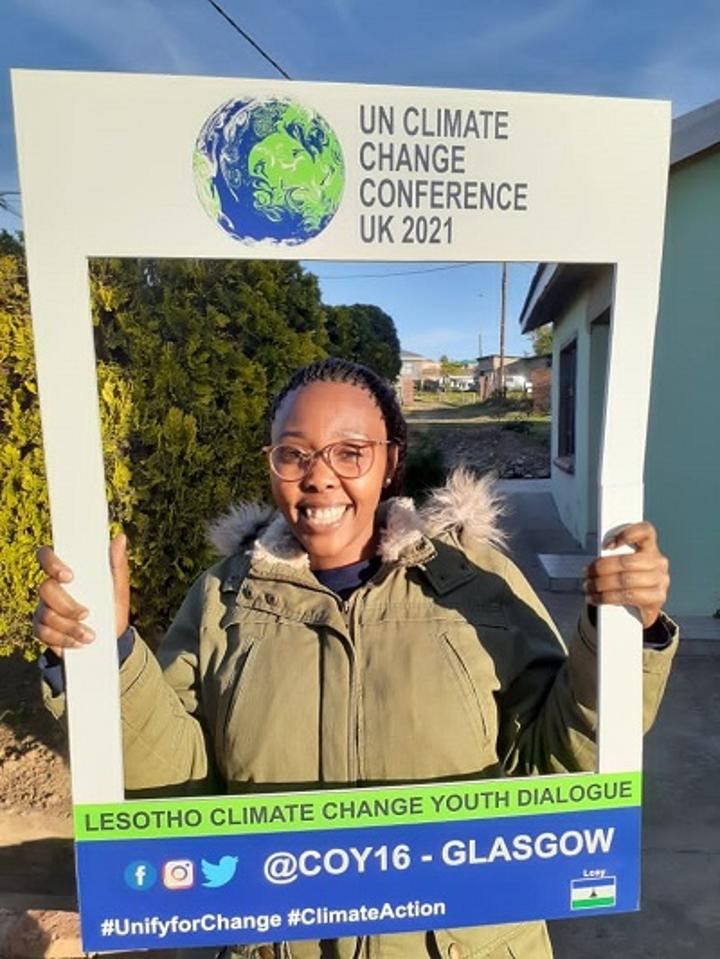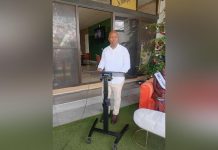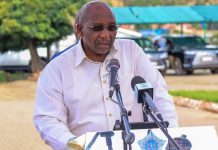Africa-Press – Lesotho. The United Nations Climate Change Conference of Youth (COY 16) Glasgow Lesotho Country Coordinators have engaged the youth and other stakeholders in climate change discussion on Monday
in preparation for the 16th COY 16 and Conference of Parties (COP26). Speaking at the discussion, COY 16 Country Coordinator Thabo Mahamo indicated that the dialogue was the first climate
change discussion held in Lesotho and that it affects everyone including the youth, hence a need for their engagement in the forum. “We want to have opinions on
Adaptation and Resilience, Climate literacy, Biodiversity and nature Based Solutions as some of the major concerns impacting people on a global scale.
We also want to give an opportunity to analyze climate related topics and find out what our leading governmental departments, Non-governmental organizations as
well as business enterprises and institutions are doing to include the youth in order to combat and adapt the effects of climate change,” Mahamo disclosed.
She also expressed that there is a need for responsive action especially from the youth since they are the most vulnerable to climate impacts just as in the same breath they are the hand,
strong enough to foster change. Moreover, she specified that youth should be able to take the first step into drafting a youth statement showing recommendations to the respective governmental departments, COY and COP using
appropriate channels. On behalf of the British High commissioner (Her Excellency Anne Macro) Relebohile Molapo pointed out that climate change is the most important issue facing the world today.
That the earth’s temperature is warming at an alarming rate and it is human activity that is causing it, the cars, aeroplanes, coal, oil fired power stations, destruction
of the forests and natural habitats. Molapo indicated that human activity has led to global warming of a full 1 degree Celsius since preindustrial times
and the number of climate-related disasters has tripled in the last 30 years. She said in the past year, Lesotho has seen recurrent and prolonged drought
impacting on food security and economic development in many parts of the country and just months ago unprecedented storms and hash floods destroying roads, bridges and farmlands.
“As we prepare for COP26 in Glasgow, it is clear that action taken so far is not enough. If we are to meet the Paris
Agreement goals, we must decarbonize the global economy three to five times faster over the coming decade than we have over the last two decades and achieve a similar atop-change in building resilience,” said Molapo.
Small Agricultural Development Program (SADP) Climate Smart Lead Tsotelo Lebete revealed that SADP supports increased adoption of climate smart agricultural technologies in Lesotho’s
agriculture, enhanced commercialization and improved dietary diversity among targeted beneficiaries. Lebete said they are working on a program together with Lesotho Meteorological Services (LMS) that will forecast
the weather in time and the messages will be passed onto the farmers in time so that they take beneficial precautions. Global Water Partnership Southern
Africa Country Program Manager Dr. Koetlisi Koetlisi highlighted that their program mobilizes water investments while also engaging the youth. He guaranteed that the voice of the youth is heard and involved.
Dr. Koetlisi mentioned another arm of their project called the SADC Youth WHEF Innovation Network in which they empower youth by equipping them with skills to unleash and realize their economic
potential. Limomonane Products Managing Director Lipuo Nkholi stressed on the importance of conservation agriculture as her farm is based in Mafeteng, one of the drought stricken districts in the country.
She also specified that under Limomonane Trust, they capacitate people on conservation agriculture which is a farming system that promotes minimum soil
disturbance, allows direct planting without conventional tillage of the soil and also promotes surface organic matter where farmers may seed directly without disturbing the mineral soil.
The Open Dialogue on Climate Change (ODCC), which the youth had taken part in, is a program under the banner of YOUNGO which is the official Youth Constituency of the United Nations Framework
Convention on Climate change (UNFCCC). The dialogues’ peer-to-peer format creates a space for interacting on an equal footing, instead of the usual top
down transmission of information and the format helps break down walls and fosters better interactions. 197 states, Lesotho included, are expected to attend the annual meeting of the UNFCCC at Glasgow in the United
Kingdom from October 31 to November 12 2021. Known as COP26, the conference was supposed to take place in 2020 but was postponed to the Covid-19 pandemic.
While delivering a speech last week Tuesday given at UNESCO Headquarters in Paris, Rt Hon Alok Sharma MP, President of the 26th United Nations Climate Conference (COP26) stressed that the success
or failure of the climate future is in the world leaders’ hands. Recalling that temperatures have already risen at least 1.1 degrees above pre-industrial levels, and that the
world has not done enough since the adoption of the landmark Paris Agreement in 2015, he urged leaders to take ambitious action at COP26 in a few weeks to
ensure that the 1.5-degree limit does not slip out of reach. “We are also urging countries to take the action needed to move to a cleaner world. To consign coal power to history.
To accelerate the drive to clean electric vehicles. To end deforestation. And to reduce methane emissions. All of which present historic opportunities to
create jobs, create growth, and move to a healthier more secure world,” indicated Rt Hon Alok Sharma in his speech. He further signposted that many climate vulnerable countries, such as Small Island Developing States (SIDS) are
leading the way on emission reductions and bold climate action. Hon Sharma called world leaders, particularly G20 leaders, to take the lead from those
climate vulnerable countries which are taking action in the most difficult circumstances to protect the planet and its people. He highlighted that four elements for
COP26 to deliver the level of ambition required: climate action plans to significantly reduce emissions by 2030 and reach net zero by mid-century and to
support adaptation to tackle climate threats. Concrete action to deliver these plans, including agreements on reducing coal, electric cars, protecting trees
and reducing methane emissions. To honour the $100 billion pledge to fund climate action and adaptation in developing states, and a negotiated outcome that paves the way for a decade of ever-increasing ambition.
For More News And Analysis About Lesotho Follow Africa-Press






